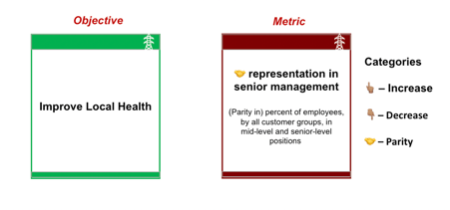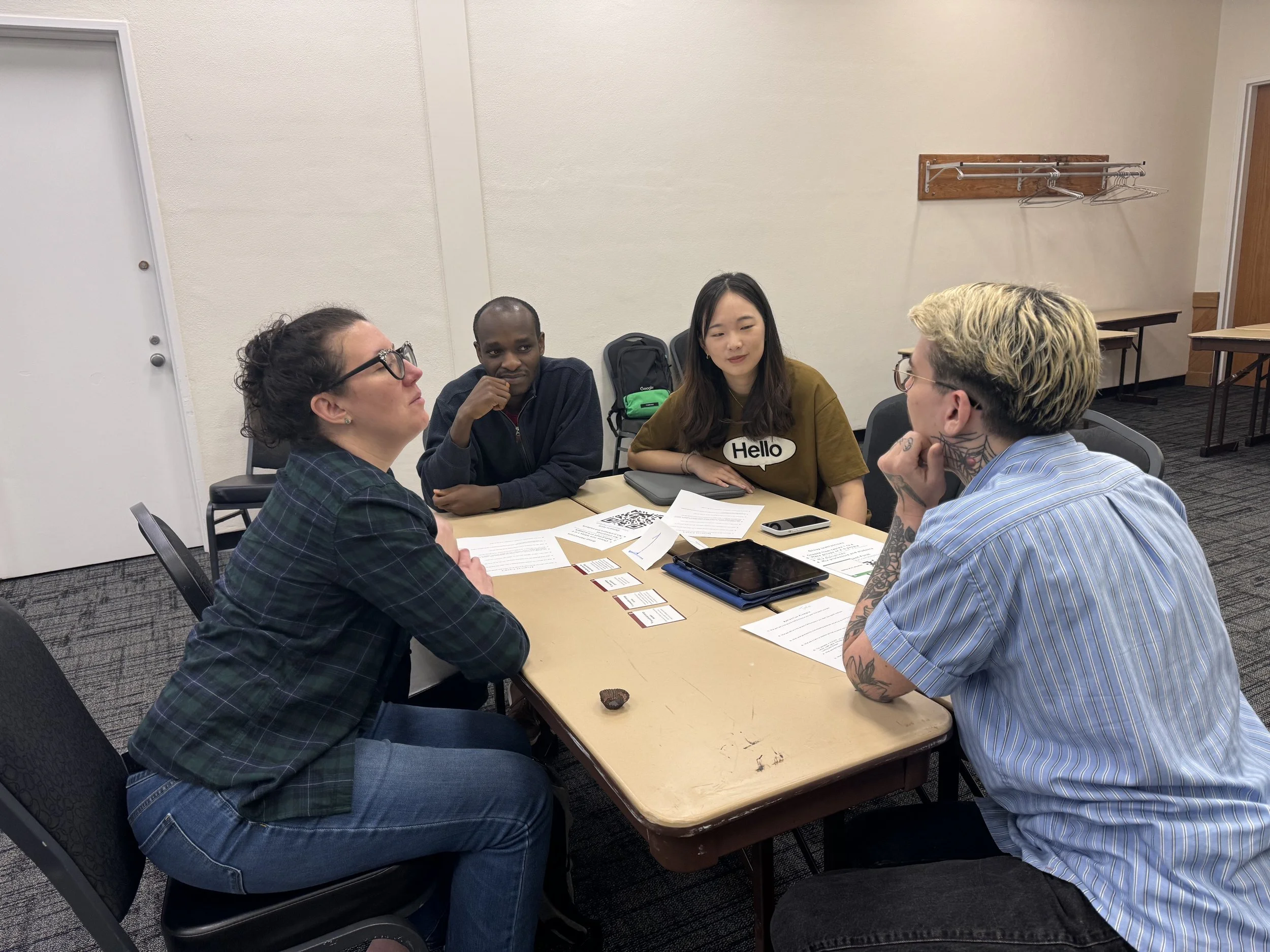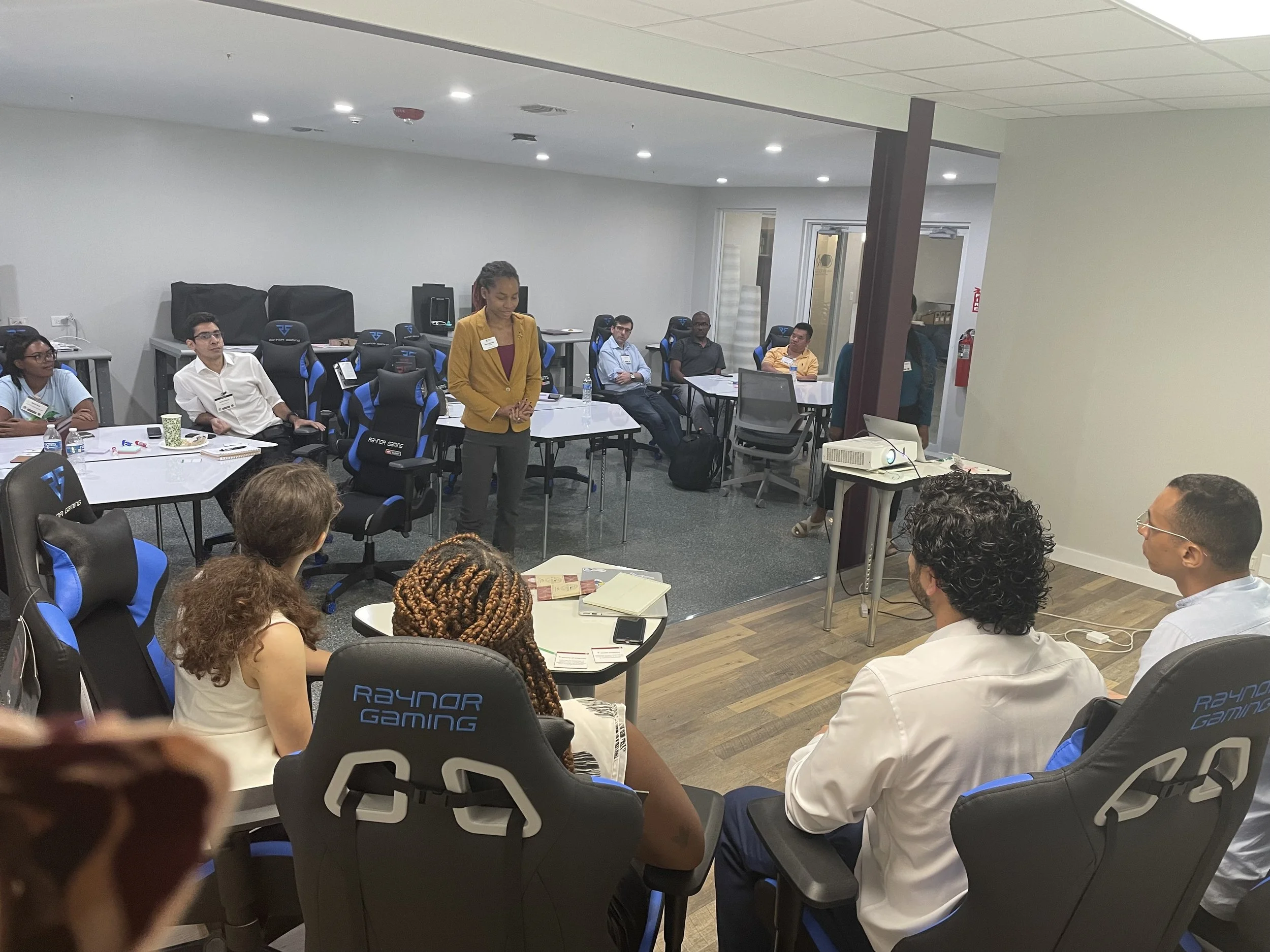Matching objectives with stakeholder-driven metrics for equitable power systems planning
Power system planning models form the basis for community interventions. With the energy transition at the forefront of policy objectives, it is important to ensure that the system planning models capture community needs and are guided by equitable metrics. Equitable metrics will help ensure that the transition's benefits and burdens are distributed fairly.
The ELEVATE team, in a collaborative effort, has developed a game for eliciting these values from various stakeholders. The game, which is inspired by the popular Apples to Apples, calls on stakeholders to match a set of energy equity metrics to a predefined list of objectives, and a judge selects the most favorable metric for the specific objective. The game follows a judge and justify mechanics, and while we have specified specific guiding rules, they can be extended and modified based on the audience.
Using this game, we create an environment where the real-world constraints of the energy system are considered in a more accessible and less intimidating form. Moreover, participants are engaged in dialogue, making implicit values explicit, thereby increasing understanding of various perspectives and enhancing the scenarios assessed by power system models.
Source of Objectives and Metrics
The objectives and Metrics are loosely based on the “Justice in 100 Metrics: Tools for Measuring Equity in 100% Renewable Energy Policy Implementation." The 2021 report, written by Talia Lanckton and Subin DeVar of the Initiative for Energy Justice, provides valuable insights into promoting equity in renewable energy policies. Specifically answering questions on
How can we measure energy access and affordability in renewable energy policy implementation?
What are some key indicators of procedural justice and democracy in the context of renewable energy?
How can economic participation and community ownership be enhanced in renewable energy initiatives?
Utilities are highlighted as key stakeholders that can be held accountable by tracking their actions (some of which we have expressed as objectives) and progress using equity indicators (Metrics). These indicators are quantitative measures to assess equity in communities, municipalities, states, or countries. They are essential for tracking progress and setting goals related to equity in renewable energy policy implementation and utilities' active participation is vital for the success of these initiatives.
Game Structure
The game is available as printable cards that are dealt to players and an offline HTML file that can be used for display and engagement with large groups. Players (as individuals or in a group) are dealt a hand 3-5 cards (red cards), and one objective (green card) is presented to all players, who must select a card that best describes the objective. A more extensive set of instructions is available for download here.
Fig 1: Sample objective and metric cards
Benefits of Using Games to Drive Engagement
The game has been played at several ELEVATE convergence meetings and piloted to an external audience at the just concluded 2024 Macro Energy Systems Workshop.
Transdisciplinary perspective taking
“I helped design Zapples to Zapples. The game provided a fun way to get feedback and insights from a wide range of researchers. It also helped the wide range of researchers to think about metrics and values around energy equity. For some, some of these concepts may have been new, while others had thought about them before.” (faculty, Industrial Engineering)
“The games have provided an opportunity to learn about different problem-solving approaches and different wells of knowledge that people from different disciplines draw from.” (faculty, Resource Economics)
ELEVATE Team playing the game at the May 2024 convergence meeting
Shifts research team power dynamics: “By putting all in similar standing, games also promote genuine student-faculty interactions allowing them to mingle and relate.” (graduate student, Industrial Engineering)
Team problem-solving: “The games, in particular, enabled me to re-discover the value of curiosity in multidisciplinary teamwork.” (graduate student, Civil Engineering)
Avery (PhD Candidate Princeton University), defending the choice of Metric card to the panel of judges at the 2023 EECIW in St Thomas
Game Use
The game is useful as instructional material in classes and for engaging with various stakeholders. Feel free to contact the team for more information.
Credits
1. This game was originally prepared by an ELEVATE task force, led by Dr. Krista Harper and including Anna Goldstein and Nwadiaru Ogechi Vivian. With further revisions by Paola P. Furlanetto, Yiwen Wang and Vivian.
2. “Justice in 100 Metrics Report” from Initiative for Energy Justice is the core technical reference



